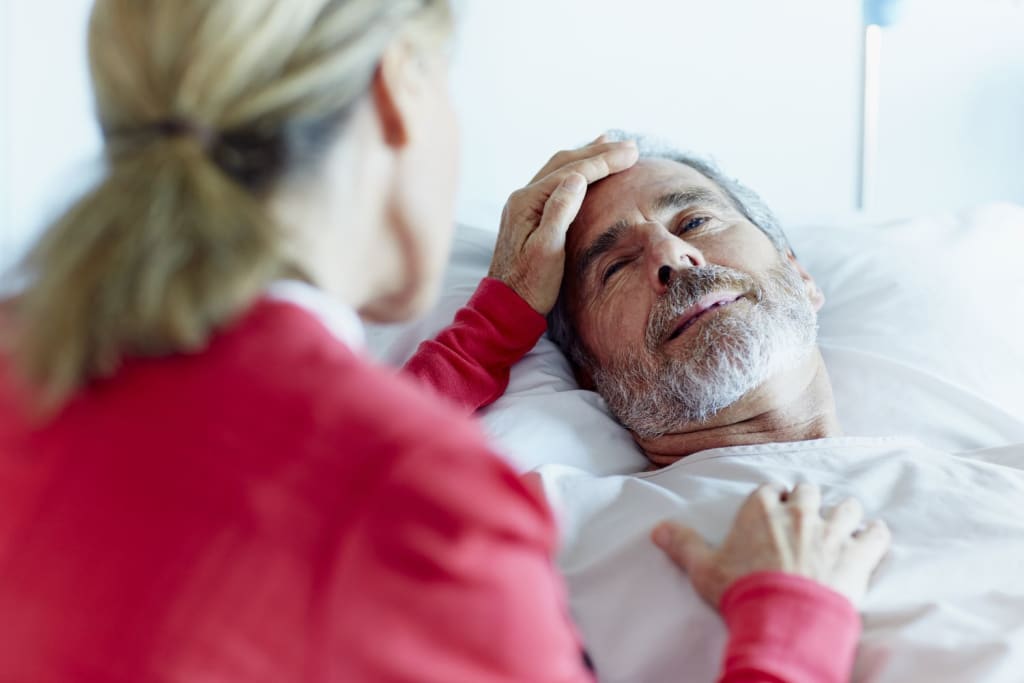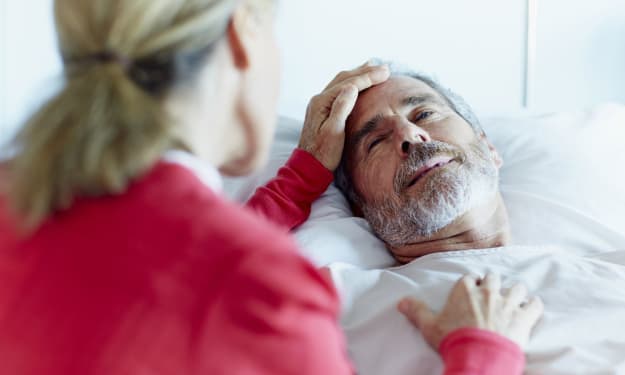
Researchers have recently studied the brains and bodies of dying people to gain new insight into what it feels like to die. First, relaxation. A recent meta analysis found that most people in the Western World will die in medical institutions, where the first sign of death is a loss of hunger and thirst. Physicians call this the beginning of the end of life. Many people are curious, if not a little scared, about what it feels like to die, but scientists are now closer than ever to understanding what actually happens while you're dying.
Step two involves active dying, which is brought on by a profound state of relaxation during which you will probably only be able to handle tiny spoonfuls of food and water. There would be extreme fatigue and unconsciousness, one study found that 72% of patients in this phase of death reported pre-death dreams involving reuniting with people who had already died, 59% said that they dreamed about getting ready to travel somewhere and 28% dreamed of meaningful experiences from their past. These pre-death dreams are happening because at this time you are mostly asleep and even dipping into unconsciousness this means that if someone tries to physically wake you up nothing will happen because the thing is studies of unconscious patients show that when they did eventually wake up from being unconscious they thought they were only just asleep essentially you are not going to be aware of going in and out of consciousness. These dreams are occurring because you are currently experiencing death during are mostly when asleep and may even dip into unconsciousness, so nothing will happen if someone tries to physically wake you up. However, research on unconscious patients has shown that when people do eventually awaken from unconsciousness, they mistakenly believe they are only slightly asleep. In other words, you won't be aware that you are entering and exiting consciousness.This stage of death is similar to being unable to move from bed due to a severe cold or the flu, at this point, you may be hooked up to a syringe pump or suppositories in order to receive oral medications or die from AIDS before seeing light of day. Studies show that your heart will beat less forcefully, your blood pressure will drop, and your organs, including your brain, will function less. Essentially, your brain is trying to sustain energy as it slowly dies. Sleep is no longer rejuvenating, and the fatigue is constant because occasionally you are now unconscious.
Your step four of death is scary breathing known as the death rattle. An unconscious person's breathing still follows the path of least resistance. You may have heard people discussing seeing the light or moving towards the light during near-death experiences. Research on rats demonstrates that a dying brain's lack of inhibition causes the visual brain system to fire this has also been found in some human studies as well. This may explain why many people report this phenomenon of seeing light as their brain begins to die.
Automatic patterns produced by their brain's respiratory system, but because they lack adequate awareness of their mouth and throat, saliva accumulates and becomes jumbled at the back of their throats.The person who is dying is not in any distress, despite the loud breathing noises caused by the automatic quick breaths that many may find disturbing. In fact, the reason why this is happening to them physiologically is because they are so relaxed that they are in the fifth stage of death, which is known as brain surging.
Researchers were naturally interested in what happens to our brains when we die, and a study on 567 dying rats revealed that certain brain regions surged with synchronized low gamma waves that were more coherent than when the rats were alive and healthy. These brain waves were similar to when rats were engaged in high-level cognitive activity.While receiving CPR, the brains of both men and women were scanned; it was discovered that, similar to rats, the brains fired in intense ways and it was also discovered that this disinhibition caused the part of the brain involved in memory to light up, allowing some patients to access stored memories while other patients who were resuscitated were unable to. These lucid experiences, which those who survived the CPR reported, included a sense of separation from the body, observing events without pain or distress, a meaningful evaluation of their life, and an assessment of their own actions toward others throughout their lives. All of these experiences are likely related to the disinhibition of the brain, recall anything that had just occurred to them, despite the fact that a study of a man's brain activity while he was dying found that it was similar to that of people taking the psychedelic drug DMT, but more recent research found that resuscitated dying people reported that what they had experienced just before death felt different than what their brain scans revealed. Some of these patients reported knowing that they were dying but also that they were moving towards a place that felt like home.
But what are individuals contemplating before they pass away? Are there shared regrets or feelings? Thank you so much for reading, and may peace be with you.
About the Creator
YM
I am a Nutritionist-Dietitian
I love life and loving every minute of it!
Enjoyed the story? Support the Creator.
Subscribe for free to receive all their stories in your feed. You could also pledge your support or give them a one-off tip, letting them know you appreciate their work.





Comments
There are no comments for this story
Be the first to respond and start the conversation.